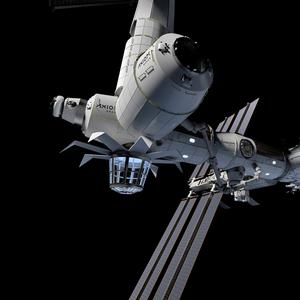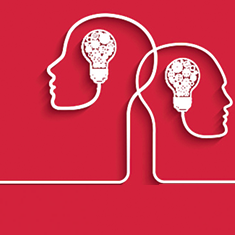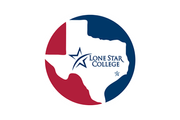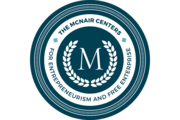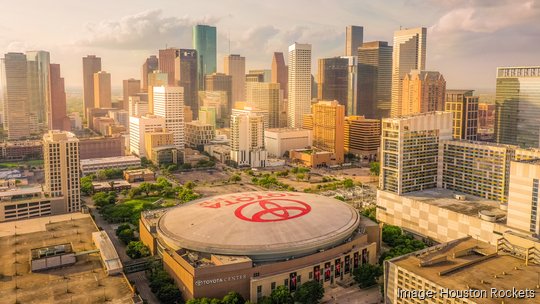
Houston is a profitable market for sports — but not sports technology. Some of Houston's top leaders in venture capital, sports, and academiaare looking to change that with one major missing ingredient: athletes.
With teams in almost all the country’s major leagues — and Houston Rockets owner Tilman Fertitta looking to improve Houston’s professional hockey prospects — Houston has a reputation as a sports hotbed, which has generated considerable revenue for the city. That reputation has extended internationally, as well, with the city set to host soccer matches for both the 2024 Copa America this summer and the 2026 FIFA World Cup.
But when it comes to deals for sports technology — which ranges from performance analytics and health care to fan experience and media creation — the Bayou City lags behind. Data that Crunchbase provided to the Houston Business Journal shows that in 2023, the greater Houston area tied with the greater Baltimore area for last place for total value of sports technology deals, with only three deals totaling approximately $1 million struck last year.
Meanwhile, sports technology is a subsector that’s bouncing back nationally after several lean years. Pitchbook found that the fourth quarter of 2023 saw $50.4 million invested in sports technology, the highest amount since Q3 2018.
Houston leaders want sports tech to score
But while the current standings look grim for Houston sports technology, some investors and academic leaders who have led early-stage startup programs say the city’s population of current and past professional athletes could help grow a new network of capital and mentorship for Houston founders.
Generally, athletes are like any other significant angel investor — they want to invest close to home, said Blair Garrou, managing partner at Mercury Fund.
"If you've got Shaquille O'Neal, whose daughter is playing at Episcopal High School [in Houston], and he gets a deal from New York, yeah, his people may show it," Garrou said, using a hypothetical example. "But what he really wants to do is … to lean in on [sports tech startup Lunchtable.ai, part of DivInc Houston's most recent accelerator cohort] when he's in town catching his daughter play. It's not about the money. It's about how do we get the player, or executive side, time to lean in with the entrepreneur."
Mercury is a generalist venture capital fund that focuses on software startups founded between the coasts, which typically attract less attention from investors than those on the coasts. But Garrou said sports technology also blends in elements of health technology and materials research, where Houston is also strong. He highlighted former Golden State Warriors player Andre Iguodala's efforts to advocate technology investment as a launch pad for athlete investments in Silicon Valley as one path that Houston's athletes could follow into their own technology portfolio.
In terms of tangible programs, Austin-based nonprofit DivInc has already launched a Houston branch with several accelerators, including one in sports technology. DivInc Houston Managing Director Ashley DeWalt worked with Mercury to push for a second cohort, which was announced this year.
“Success in Houston is going to come down to the success stories, like [Houston-based] nVenue, which has an NBA equity investor,” DeWalt said. "Having more of those success stories, that's what's going to start to change that narrative."
In addition to his role at DivInc, DeWalt also launched The Collectiv, a new Houston-based venture capital fund targeting sports technology.
Several alumni from the first DivInc cohort have begun making waves already. College Station, Texas-based Screen Skinz, which creates custom phone accessories, secured licensing deals with the NFL, NFLPA, MLB, NBA, NHL, MLS, NCAA and Disney Properties after completing the accelerator program.
Connecting athlete-investors with founders
One of the founders in DivInc’s cohorts, Abdul Foster, knows all about getting athletes investing. After all, he’s related to one: former Houston Texans running back Arian Foster, who once nearly sold his own performances as a stock and was an investor in DraftKings, according to Abdul.
But Abdul Foster, who founded personal trainer app Trainr, said he didn’t reach out to his former clients at the Texans or the Rockets when he launched his app. He knew that none of them were as clued in as athletes in other cities when it came to technology.
“You take athletes like Kevin Durant and Steph Curry, who live in Silicon Valley, and they're inundated with the information around them,” Foster said. “[Houston] is not known for that. And I think we could do a better job of connecting to athletes here."
DeWalt said part of the goal of the DivInc accelerator and its connection to the Ion, a Rice University-funded innovation hub in Houston’s Midtown, was to bring in local athletes to educate them about the investment opportunities, though he couldn’t disclose any specific athletes.
“We've had [venture capital] one-on-one workshops up here with athletes — retired NBA players, current NBA players, retired and current NFL players," DeWalt said.
Getting athletes in general to invest earlier in their careers has become easier, especially with policies like name, image and license — commonly called NIL — rules for athletes, DeWalt said. Paul Cherukuri, chief innovation officer and vice president at Rice, also shared that some current university athletes are getting involved in technology projects of their own off the field.
"The nice thing about having a university that has excellent top-tier athletes and brilliant engineers working on stuff is, because they're a player, they can design it for players," Chirukuri said.
Additionally, local teams that want to upgrade their fan experience are casting a net for interested companies. Micah Kamla, head of innovation at the Rockets, shared the example of San Francisco-based artificial intelligence platform On Platform Inc., which has been used at the Toyota Center since 2022 to sort out ticketing problems.
Kamla said similar niches or even entirely new ones could be tapped by local companies.
“There's no reason why professional sports franchise can't get in the weeds here and start working with startups to solve their very unique problems," Kamla said. "I think that's where there needs to be relationships like this [with Mercury and Collectiv] so we can say, 'Hey we've got a need. Do you know anyone working on this?'"
Houston Business Journal Sports Business Reporter Chandler France contributed to this report.
Sign up here for the Houston Business Journal’s free morning and afternoon daily newsletters to receive the latest business news impacting greater Houston. For more business intelligence, follow us on LinkedIn, Facebook, X (formerly known as Twitter) and Instagram.
